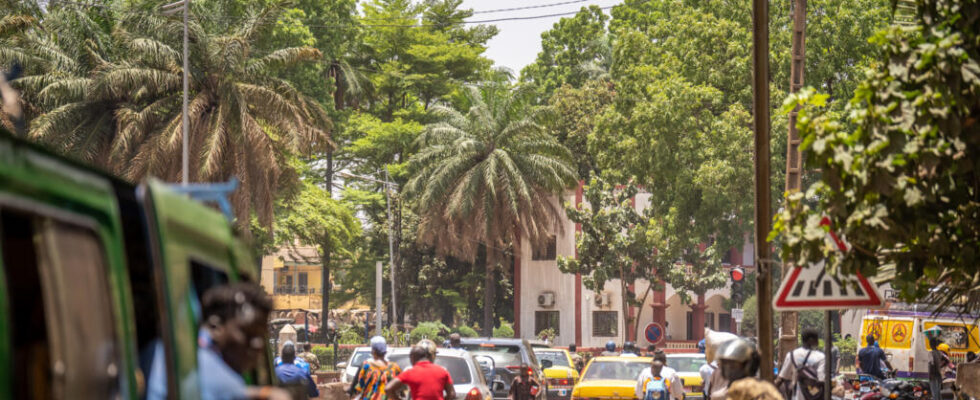The strike continues in Mali’s banks. After a very busy first day this Thursday, June 6, Synabef, the banking and insurance union of Mali, maintains its call for a strike to obtain the release of its general secretary. Imprisoned on Wednesday, Hamadoun Bah is also number two of the UNTM, the first trade union center in Mali. In this very tense context, the opposition is calling for demonstrations against economic difficulties and more broadly against the regime in place.
2 mins
The meeting given by the opposition is set for 2 p.m. local time, Place de la Liberté, in front of Bamako town hall. This call was launched by the Synergy of Action for Mali, a coalition of political parties and civil society organizations opposed to the transitional authorities. “ Against power cuts and the high cost of living »: the Synergy of Action firstly appeals to the fatigue of Malians, whose daily lives are undermined by economic difficulties and power cuts.
But the officials contacted by RFI do not hide it: what they want is to initiate a citizen uprising, to increase protest against the transitional authorities, whom they consider to be “ illegal and illegitimate “.
Fear of repression
Their capacity to mobilize, however, comes up against the risk of repression. The political activities of all parties and associations of the Mali are officially prohibited and there are countless procedures for “ attack on state security » launched against overly critical voices. In recent weeks, only students from the Association of Pupils and Students of Mali (AEEM) have dared to organize some actions, but on a very limited scale. Currently, more than twenty students are detained by State Security outside of any judicial framework, according to the student organization, which has officially dissolved.
The inhabitants of Boni, in central Mali, displaced due to the jihadist blockade hitting their town, were able to demonstrate last week to express their anger and their feeling of abandonment. But far from Bamako, and without claiming to bring down the regime.
Important opposition figures are currently in exile, but not all.
“ Because of the danger, there may not be many people, recognizes a Synergy executive, but we want to set the tone. I will be present and I have prepared myself for the consequences “, further assures this source.
This Friday, another gathering was planned, not really of the same order: the Collective for the Defense of the Military (CDM) called for celebrating the third anniversary of the inauguration of the transitional President, Colonel Assimi Goïta came to power after the August 2020 coup, almost four years ago. He only officially became president after the second coup d’état of May 2021, presented as a “ rectification of the trajectory » of the Transition. But the CDM finally announced Thursday evening the cancellation of the rally, due to “ the prevailing situation ».
The energy crisis behind the mobilization
CEO of the Kledu conglomerate and former president of the National Business Council of Mali, Mamadou Sinsy Coulibaly, passing through Paris, testifies to the impact of electricity shortages on Malian businesses with Claire Fages, from the RFI economics department. “ Today, we have one hour, maximum two hours of power per 24 hours or 48 hours. No economy can develop like that. All our businesses are dying or closed to save what we can save. »
Small Malian businesses, hairdressers, tailors, vehicle cleaning, meat or fish sellers, who need ice, were the first to close shop, they did not or no longer had the means to run a generator. Large companies have turned their backs, but are being affected in turn. Mamadou Sinsy Coulibaly had to close his packaging factory. “ I ran the factory using generators, these were additional costs and at a certain point my customers were no longer able to buy my products because they had become too expensive. So, we stopped, we laid off 125 people. I also closed the digital printing factory because these machines are very sensitive to the quality and regularity of electricity. » Even banks in Mali have to produce their electricity. In the absence of an official report, the former boss of bosses estimates that the energy crisis has pushed 2,000 Malian businesses to close.
Read alsoMali: call for strike to protest against the arrest of an important union leader
